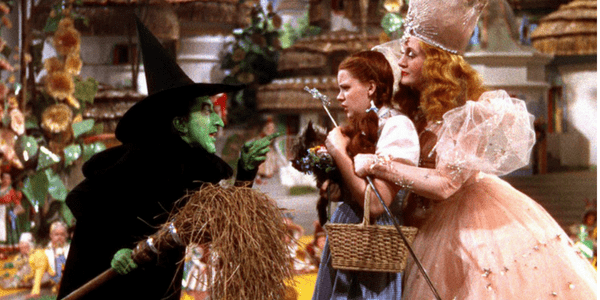 Grant Morrison: Talking With Gods, directed by Patrick Meaney
Grant Morrison: Talking With Gods, directed by Patrick Meaney
Halo 8, 80 minutes, 2010
I suspect there are only a few kinds of people who’ll be interested in the documentary Grant Morrison: Talking With Gods – either serious documentary fans, devoted comic-book readers, or magical practitioners. Each of them will come away from this film quite happy.
Director Patrick Meaney largely works with a familiar pattern for this kind of celebrity documentary – one of mostly stepping back and letting the interviews (and, of course, editing) tell the story. There are several attempts to visually represent the psychedelic elements of the tale created by cinematographer Jordan Rennert, though the results are far less annoying than is often the case in such films! The perspective is mostly one which aims at the comic-reading audience, introducing them fairly gently to the core of occult thought that permeates his work.
The film opens with a montage of several comic-book writers and artists talking about Morrison’s reputation as a very successful comics creator who is also out as a practicing chaos magician who’s no stranger to psychedelics – and the usual kind of “drug-crazed madman” rumours that inevitably follow.
From here, the film works to a rough chronology of Grant’s life, accompanied with the odd talking-head from his past or his career. It tells the story of a working-class Glasgow laddie raised in an atheist pacifist family who wrote and drew his own comics in his teens, discovered practical occultism, found success and fame, nearly destroyed himself in the middle of creating what many consider his finest work… and the later huge success with big-name superhero books such as X-Men, Superman and Batman. Intertwined with this are a series of informal interviews with Morrison himself – which for me were the strongest parts of the film.
He’s refreshingly direct when talking about both his professional approach to writing and his magical experiences and praxis. He emphasizes the ease and effectiveness of the chaos techniques he uses and describes those experiences lucidly and passionately…and it’s here where the mages in the audience get their moment. There’s a particular bit where he describes the Click – that moment of surety coalescing around you, the feeling that the magic is there and it’s working, and the tiny but soul-shaking Click in the back of your mind that accompanies that. I don’t often hear folk talk about the Click, and I find it notable that he does.
Morrison’s experiences (especially his shift in the 1990s from straight-edge fanboy to psychedelic world traveller) and their leading to his most magical of works, The Invisibles, are delineated with care by Grant & many of those around him at the time. Particularly interesting to myself and the other Blank Badge wearers out there is the story of how the book was first envisaged, at a San Francisco rave celebrating the 50th anniversary of the discovery of LSD.
Morrison’s intention with The Invisibles was to use the comic as a tool to transform both himself and the world – the entire run of the comic being a Hypersigil, an extended magical act in itself. The nature of the Hypersigil he cast had dramatic real-life effects, especially for Grant – who almost dies of a condition startlingly similar to one he’d put his protagonist/self-avatar King Mob into within the comic. Ample time is also given to talking about Morrison’s ‘alien abduction’ experience which heavily informed The Invisibles and changed his life – it’s refreshing to see (as with all the occult experiences he recounts) the matter being treated with seriousness and respect.
Although inevitably tales of disgruntled fans accusing Morrison of making weird shit up instead of writing a proper comic (especially around the Final Crisis event series at DC) do surface, his colleagues all make it quite clear that Morrison didn’t get given the keys to the DC kingdom for writing unintelligible acid rants.
The film ends more-or-less up to date, taking in Morrison’s darker post-911 work such as The Filth to his later rediscovery of optimism and joy (partly through his work on All-Star Superman, which he views as a shamanic Solar working, and partly meeting his wife Kristan – whose appearance to the film is minimal, presumably at her request).
There are a few areas where I would have liked a little more depth – his ongoing feud with Alan Moore is mentioned while the one with Mark Millar is barely noted, and I would’ve loved to see more about some of his other books such as We3, Seaguy and Joe The Barbarian – but within the limitations of the form and the length of the film, it’s a solid look at the man and his work.
It’s interesting to compare this to probably the only other film of its kind, subject-wise – The Mindscape of Alan Moore. Both are studies of modern writer-mages who work in comics and are unafraid of entheogens or conformity. But where Mindscape has a rather studied, rehearsed feel, Talking comes across as warmer, informal and accessible – perhaps a reflection of the men and their magical styles.
Recommended for anyone interested in the work of a modern creator who is experienced in magic, this is a very entertaining and strong piece of work – and for all fans of Grant Morrison, it’s simply indispensable.
PPGN8KCT768B
GHF4PDCZXKXB
Originally published on Plutonica.net 18 November 2010.








